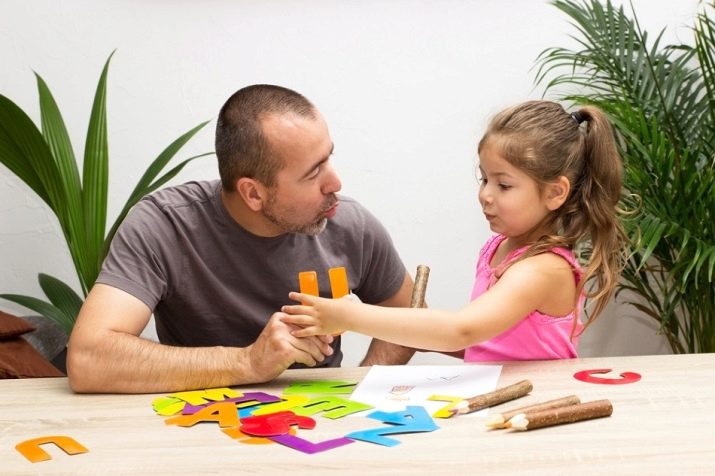What if your child is depressed?
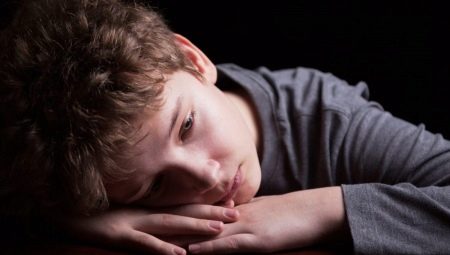
Depressive disorder is not common in children. Usually it arises as a temporary reaction of the child's psyche to an unfavorable situation and is situational in nature. It is very important to provide timely assistance to your child. Depression that begins in adolescence can become chronic.
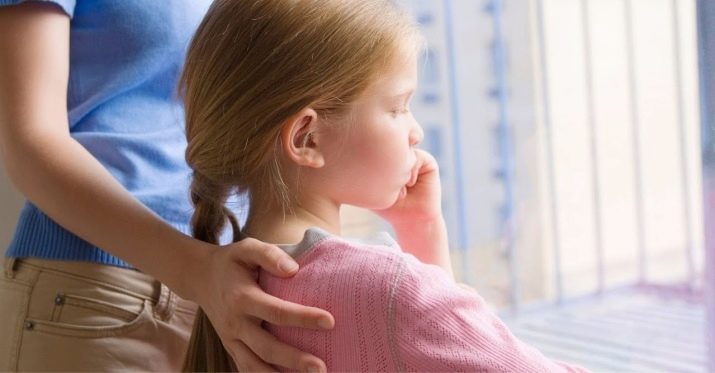
Causes
Healthy babies, due to the structure of the child's psyche and nervous system, are usually not prone to manifestation of affective disorders. Most often, in children under three years of age, depression is of a pathological nature. It may be associated with damage to the central nervous system. A depressed state in a baby happens after an intrauterine infection, acute hypoxia during childbirth. Various infectious diseases such as meningitis can affect the functioning of the infant's brain. Lack of oxygen in the cerebral circulation leads to cerebral depression.
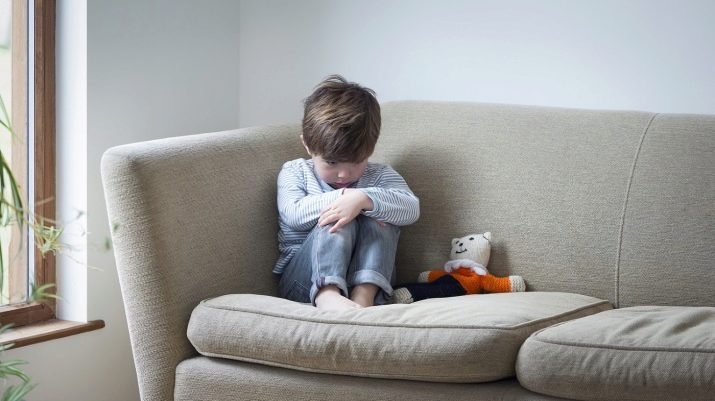
Premature babies, introverts, children with congenital malformations and various CNS anomalies, as well as anxious and vulnerable individuals are prone to depression. Emotional instability is the most common cause of depression in children.
In autumn and winter, the psychological state of children is affected by the lack of sunlight.
Between the ages of six months and one and a half years, babies separated from their mother experience anxiety, refuse to eat, and cry. Reactive depressive disorder occurs in children 2-3 years old who are not ready to attend kindergarten due to the forced separation from their family. The child experiences despair and longing.

Some experience headaches since childhood, suffer from allergies and diseases of the gastrointestinal tract, thyroid gland, or mental trauma. Any illness can cause depression. The feeling of powerlessness and helplessness in front of insurmountable obstacles, the collapse of illusions and ideals also contribute to the emergence of an illness. Childhood depression can be caused by a hereditary predisposition.
In preschool children, depressive disorder occurs due to excessive parental control, excessive custody, or as a result of indifference at the sight of the baby's success. If a preschooler at the age of 5-6 does not have enough parental attention, he loses interest in the events that are taking place and falls into depression with alarming manifestations.
Sometimes a school-age child cannot build normal relationships with peers or a teacher, therefore he is in constant stress. At the age of 10, a depressed person may experience nightmares, obsessive fears, and learning difficulties. The birth of a brother or sister sometimes provokes childish jealousy.
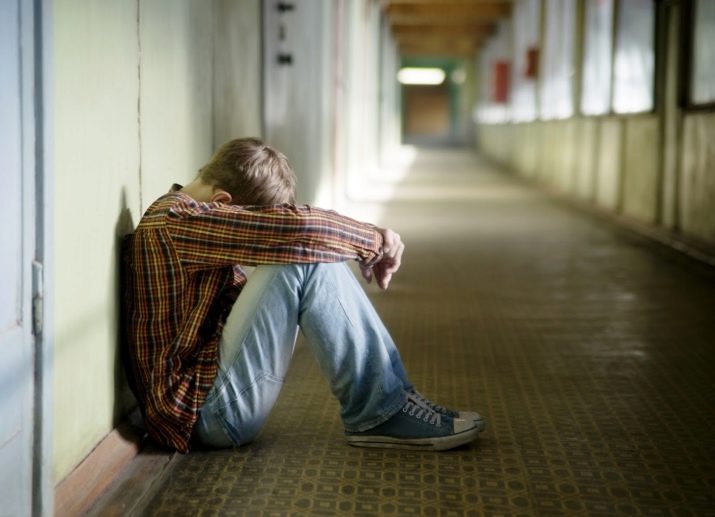
The reason for the appearance of depression can be family scandals, domestic violence, aggression of loved ones, a difficult psychological situation. At home, the child cannot feel safe. Corporal punishment during the period of active knowledge of the world negatively affects the psyche of the child. He closes in and completely withdraws into himself.
At about the age of 11-12, children enter puberty. Hormonal changes in the body lead adolescents to alienation. The boy suffers from nocturnal emissions, the girl has to adjust to the menstrual cycle.
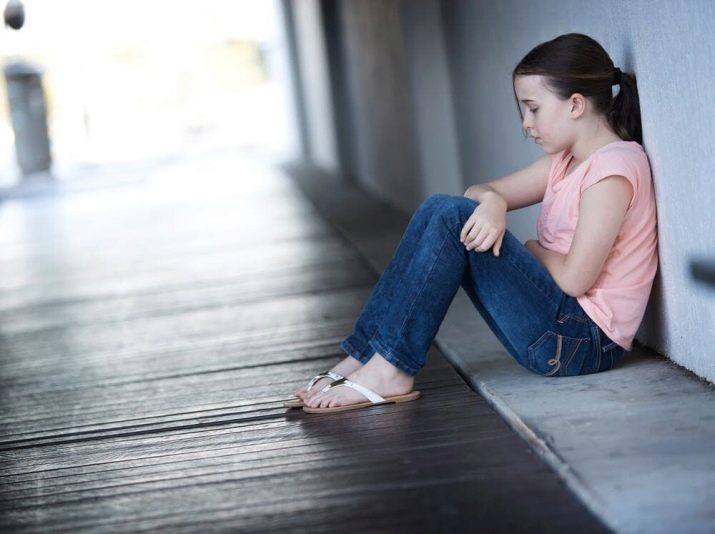
An overabundance of hormones leads many teenagers to aggression.
The secretiveness and distrust of adolescents make it difficult to identify a depressive disorder in a timely manner. Depression can result in suicide.
Signs
It is difficult for children to evaluate their own emotions, so they cannot understand them, especially to convey their psychological state to their parents. Attentive parents usually notice even disguised symptoms. Increased anxiety, lingering bad mood, decreased physical activity and mobility, sluggish gait, impaired coordination of movements signal emotional and physical disruptions in the child's body, and incipient depression. Often, the depressed state of the baby is accompanied by anxiety and fearfulness. A depressed girl ceases to be interested in her appearance, to show off in front of a mirror. She can look sloppy.
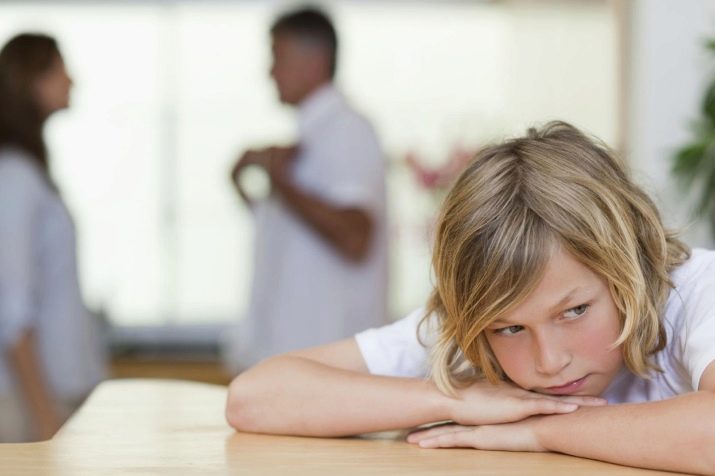
Children 10-11 years old lose the ability to enjoy their favorite activities, music, new things, gifts, delicacies, excellent grades. They are not encouraged to meet friends and close family. The teenager does not go for walks, abandons school, avoids participating in social and family events. It is difficult to interest him with something.
Parents should pay a lot of attention to their children from early childhood in order to prevent the formation of depression. Every child is different. At the age of 3 years, the baby is growing rapidly, his psycho-emotional sphere is changing. He begins to perceive objects in a different way, because he thinks a lot and discovers new properties of various objects.
Expanding the communication zone contributes to the mastery of speech skills and the development of independence. It is during this period that parents should not ignore any changes in the behavior and habits of their children, as they may indicate the development of childhood depression.
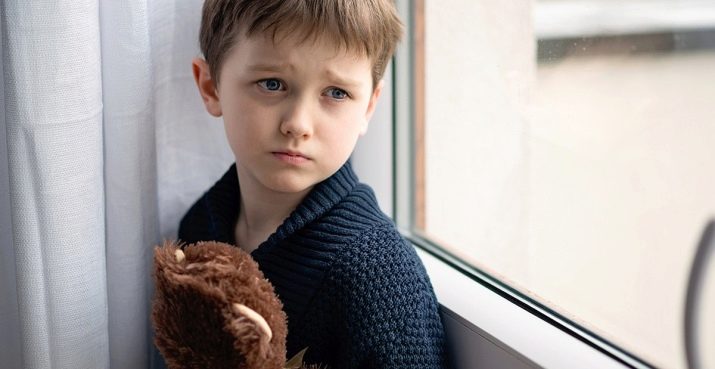
In three-year-old babies, a depressive state can be recognized using some of the common signs characteristic of this ailment.
Isolation
The child does not want to communicate with others. He speaks little, moves away from his parents when trying to talk to him. Any action is difficult for the baby. He constantly expresses protest at the desire of adults to occupy a crumb with something. The kid often has to be persuaded or interested in a new toy, candy, chocolate. The child spends most of the time alone, hiding in a cozy place.
Lack of appetite
The kid flatly refuses to eat. He is not even interested in his favorite dishes. It is impossible to force a child to eat or drink - he immediately begins to cry. At the same time, the baby does not feel hunger and thirst.
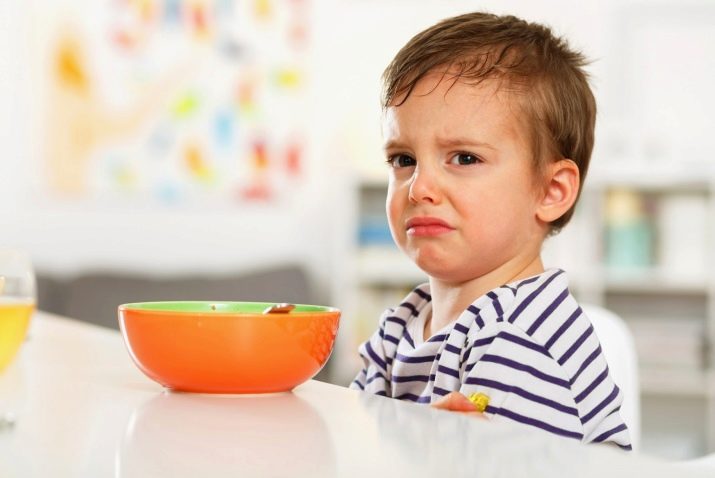
Sleep disturbance
In the evening, the child cannot fall asleep for a long time. Due to insomnia, wakes up late in the morning. In the process of falling asleep, twitching and jerking are observed. During sleep, the baby sighs often. The crumb is characterized by moodiness, but not tearfulness. This detail needs to be given special attention.
Fears
Fear of darkness, loneliness, death in children under the age of 3 is usually unusual. The appearance of such signs in a baby should alert parents, as they signal the beginning of depression.
Attacks of aggression
Aggressive and cruel behavior towards toys and pets is often a sign of a depressive disorder. The kid with rage harms toys, punishes them, tries to inflict imaginary pain on them.
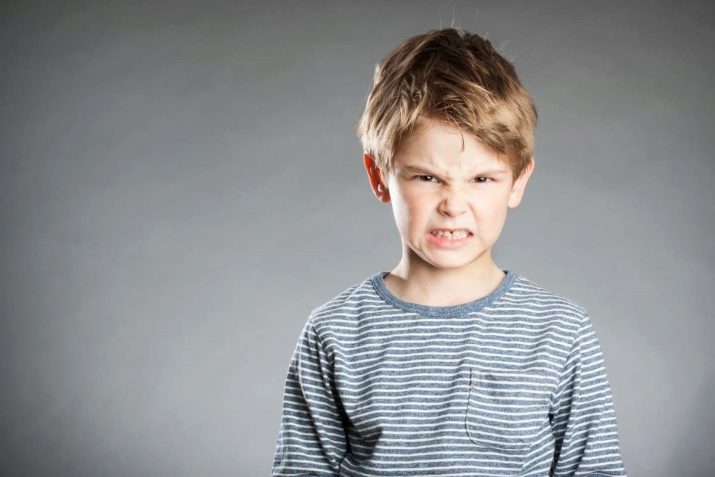
Classification
In modern psychiatry, the urgency of creating a classification of children's depression is great. For now, we have to use criteria designed for adults. Specialists are guided by 2 classifications: ICD-10 and DSM-III-R.
In ICD-10, the additional code F-93 is used to designate emotional disorders in children. In the card of an adult patient, one can find codes indicating that depressive disorders in the patient have been observed since childhood. So, episodic cases of depression are marked with the code F-31, and dysthymia - F-34.
This classification records in children various phobias, obsessive fears, unhealthy rivalry at the birth of a brother or sister, interpersonal conflicts and anxiety disorder associated with separation. The classification includes other (typical for children) emotional disorders, including an unspecified etiology.
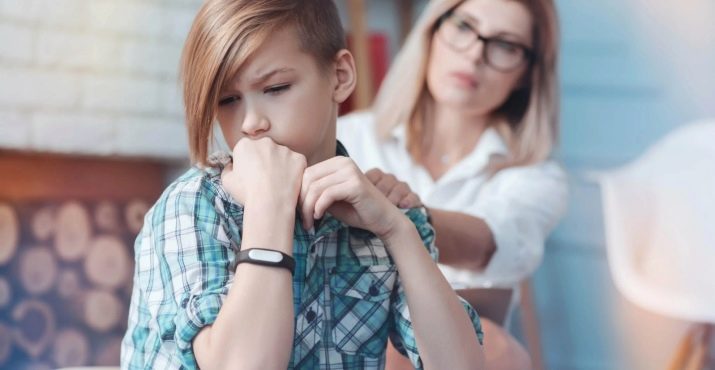
The DSM-III-R classification does not imply the distribution of depression by age. The criteria are the same for all.
- According to the degree of manifestation, they are divided into mild, moderate and severe depression.
- The simple forms include melancholic, anxious, adynamic, and apathetic types of depressive disorder. The complex forms include the senesto-hypochondriacal type and depression with delusions and hallucinations.
- Endogenous depression in babies develops against a background of physical illness, and in schoolchildren and adults - as a result of mental disorders. Exogenous depressive states are associated with external factors.
How to help?
Parents without special education will not be able to bring their child out of depression on their own. The help of a pediatrician, neurologist, psychologist or psychotherapist is needed. The specialist will tell the parents what to do in this situation. He will outline ways to restore the psychological and emotional sphere of the baby. Medication will be prescribed if necessary.
First, you need to identify the presence of all children's fears. Then you need to create a comfortable and cozy environment for your child. The family should have a favorable and trusting climate. All family troubles must be eliminated. It is important for a child to feel their importance.
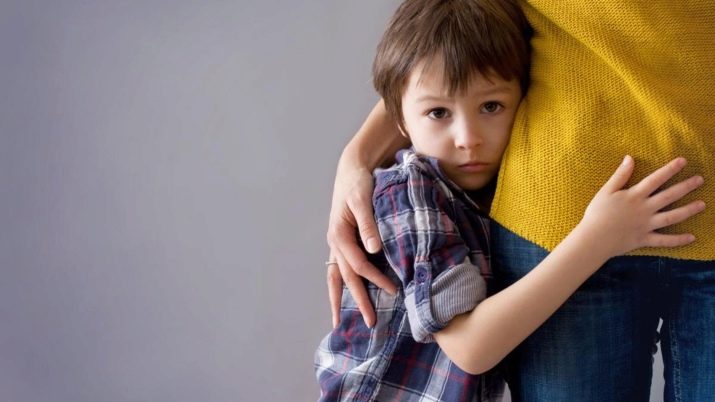
It is necessary to form the image of the main person in the family with care, so that, along with the idea of \ u200b \ u200bthe value of a child's person, selfishness is not laid.
It is very important to establish the correct daily routine. It is worthwhile to clearly distinguish between the time of games and rest, sleep and wakefulness. Parents should provide their baby with adequate nutrition. A balanced diet involves the inclusion of all the necessary vitamins and minerals in the child's food. Proper nutrition helps to raise vitality.
Any child is in dire need of maternal and paternal love and affection. The little man needs parental hugs and kisses.Family quarrels and disagreements between mother and father adversely affect the psyche of the baby. He senses growing anxiety. When one of the parents leaves the family, the baby gets a feeling of loneliness.
The child must always be explained the reasons for the events. Talk to your children more often. Conversations with them contribute to the acquisition of skills to express their own thoughts in words.
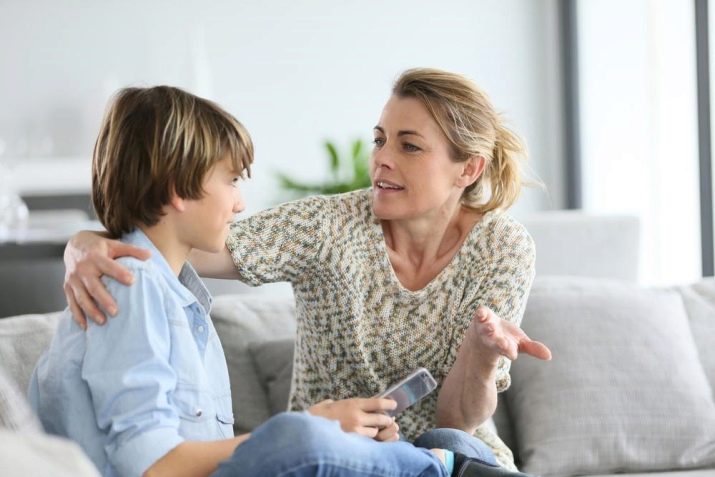
Treating childhood depression is directly related to eradicating childhood fears and negative thinking. Provide psychological support to your child. Show consideration and empathy. To maintain the desired emotional background, new impressions should be regularly added to the baby's life. Distract from your worries by asking for help around the house, going on an excursion, or going outdoors.
Play therapy and swimming are helpful in combating childhood depression. Enroll your baby in a sports section or dance. Do not put super-tasks in front of him, lower the bar of requirements in order to avoid overwork. In addition, experts recommend giving your child a massage.
Drawing together with paints or felt-tip pens reduces the anxiety of the baby. A baby can get out of depression with the help of mother's lullabies, good fairy tales and beautiful rhythmic verses. Get your child a toy that you can carry with you. It will allow the baby to feel confident in situations that provoke children's fear.
